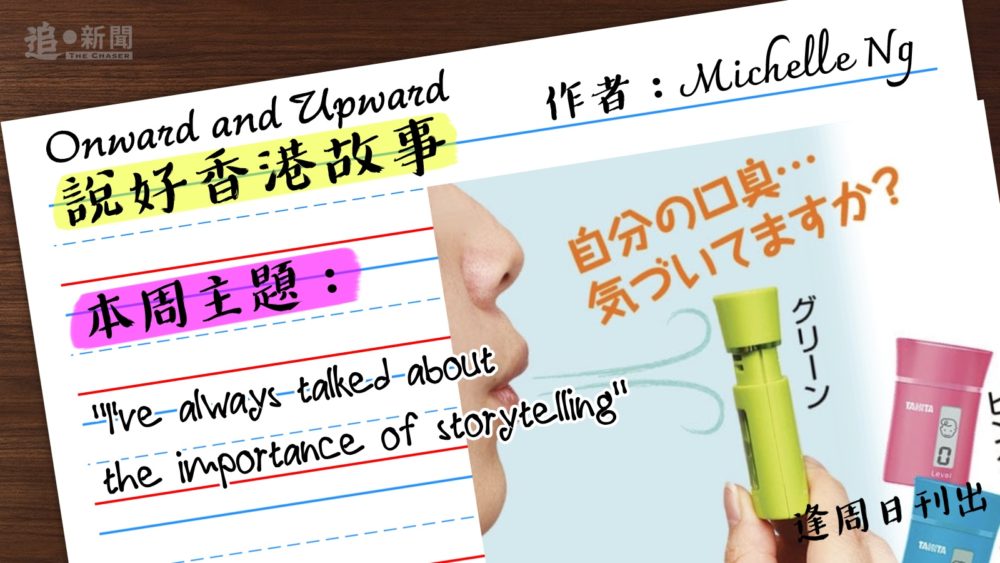
我經常推薦已經在外國讀書的香港學生看名為“EO” (Entrepreneurship Opportunities) 的 YouTube channel。該頻道經常採訪一些在tech sector成功創業的擁有亞洲面孔人士,
我這裏指的 communication skills,超越了不少香港人對 communication skills 的理解(英文沒口音,說話流暢等)。在西方職場,
Yamashita 也啟發了我,
Who but the hygiene-obsessed Japanese could have invented a gadget like this: before you show up for a social occasion, blow into the device’s vent, and you’ll immediately get a reading on whether your breath stinks.
As a writer of Chinese ethnicity who works in English, a language that’s strictly speaking not her native tongue, I often think of this bad breath tester after I’ve just finished a piece of writing. At this point, if I do take a moment to think back on the many awkward words and phrases I’ve had to weed out, I’m sure there are still some I’ve overlooked, and I’m left wishing for a tool that can sniff them out for me (and no, writing aids like ChatGPT and Grammarly can’t come to my rescue because they handle technical issues like grammar rather than the finer points of style).
My often crippling self-consciousness about my English becomes an asset when I am helping my Chinese students navigate the challenge of crafting native or near-native English copies. As they watch me agonize over whether I should replace this or that word, whether I should reverse the structure of a sentence to underscore a point, or whether I should reorganize the order of paragraphs to smoothen the flow of logic, my students will, over time, get used to seeing self doubts as normal. The day will then come when they can follow my example and do the equivalent of speaking to people without a prior bad breath test: just complete the piece, submit it, and vow to do better next time.
Michelle Ng
英國牛津大學畢業,前《蘋果日報》和《眾新聞》專欄作家,現在身在楓葉國,心繫中國大陸和香港。
聯絡方式: michelleng.coach@proton.me
個人網站: https://michellengwritings.com
🌟加入YouTube頻道會員支持《追新聞》運作🌟https://www.youtube.com/channel/UC5l18oylJ8o7ihugk4F-3nw/join
《追新聞》無金主,只有您!為訂戶提供驚喜優惠,好讓大家支持本平台,再撐埋黃店。香港訂戶可分享給英國親友使用。



